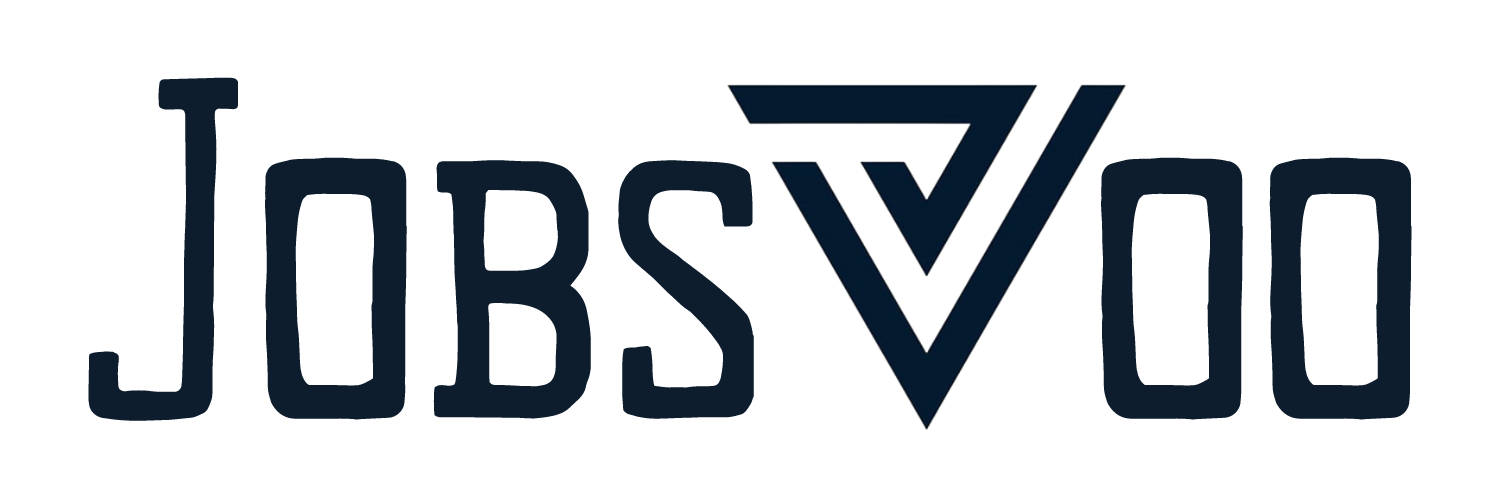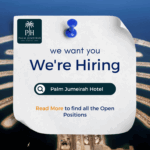Introduction
Securing an interview in today’s competitive job market can feel like a daunting task. With numerous applicants vying for the same position, standing out from the crowd is essential. This article will provide you with effective strategies to improve your chances of getting an interview and landing your dream job. From crafting an impressive resume to building a strong online presence, we’ll cover all the steps necessary to make a positive impact on potential employers.
Understanding the Job Market
Before you start applying for jobs, it’s crucial to understand the current job market. Research the industries that are hiring and identify the trends that may affect your job search. This knowledge will help you tailor your application to match what employers are looking for, thereby increasing your chances of getting noticed.
The job market is continuously evolving, influenced by economic conditions, technological advancements, and societal shifts. By staying informed about these changes, you can better position yourself as a candidate who is not only qualified but also aware of the industry landscape.
Crafting an Impressive Resume
Your resume is often the first impression you make on potential employers. It should be well-organized, free of errors, and highlight your most relevant experiences and achievements. Here are some key tips to ensure your resume stands out:
- Keep it concise: Aim for a one-page resume if possible, focusing on your most recent and relevant experiences.
- Use a clean format: Choose a simple, professional layout with clear headings and bullet points to make it easy to read.
- Highlight key achievements: Use quantifiable results to demonstrate your impact in previous roles (e.g., “Increased sales by 20%”).
- Include keywords: Incorporate terms from the job description to pass through Applicant Tracking Systems (ATS).
Highlighting Key Skills and Achievements
Employers look for candidates who can bring valuable skills and achievements to their organization. Make sure to emphasize both hard and soft skills that are relevant to the job you’re applying for. Hard skills are specific, teachable abilities such as technical proficiency, while soft skills include traits like communication, teamwork, and problem-solving.
When listing achievements, focus on those that showcase your ability to contribute to the company’s success. For example, if you led a project that resulted in significant cost savings, include that information along with any measurable outcomes.
Tailoring Your Application to the Job
Generic applications are easy to spot and often overlooked. Tailor each application to the specific job by carefully reading the job description and aligning your resume and cover letter with the required skills and experiences. Highlight how your background makes you the ideal candidate for the position.
Personalization demonstrates your genuine interest in the role and the company, setting you apart from candidates who submit one-size-fits-all applications.
Writing a Compelling Cover Letter
A cover letter is your opportunity to provide more context about your resume and explain why you’re a great fit for the role. It should be concise, engaging, and tailored to the job. Start with a strong opening that grabs the reader’s attention, and use specific examples to illustrate your qualifications.
Express your enthusiasm for the position and the company, and end with a call to action, such as requesting an interview or expressing your desire to discuss how you can contribute to the team.
Building a Strong Online Presence
In today’s digital age, having a robust online presence is crucial. Employers often search for candidates online to learn more about them. Make sure your LinkedIn profile is complete and up-to-date, showcasing your professional experience, skills, and endorsements.
Engage with industry-related content and participate in professional groups to increase your visibility. A well-maintained online presence can reinforce your application and demonstrate your commitment to your career.
Networking Effectively
Networking remains one of the most effective ways to find job opportunities. Attend industry events, join professional organizations, and connect with colleagues and mentors. Building strong relationships can lead to referrals and job leads that aren’t advertised publicly.
Don’t be afraid to reach out to contacts in your network for advice or introductions. A personal recommendation can significantly enhance your chances of getting an interview.
Utilizing Job Search Platforms
Take advantage of job search platforms such as LinkedIn, Indeed, and Glassdoor. These platforms allow you to set up job alerts, apply to multiple positions, and research potential employers. Make sure your profile is optimized with relevant keywords to increase your chances of appearing in searches by recruiters.
Regularly check these platforms for new job postings and apply promptly to increase your chances of being considered.
Preparing for Pre-Screening Assessments
Many companies use pre-screening assessments to evaluate candidates before inviting them for an interview. These assessments can include aptitude tests, skills evaluations, and personality questionnaires. Familiarize yourself with the types of assessments you might encounter and practice them in advance.
Preparation can help reduce anxiety and improve your performance, demonstrating your suitability for the role.
Following Up After Submitting Your Application
Following up on your application shows your interest and initiative. Send a polite email to the hiring manager a week or two after submitting your application, reiterating your enthusiasm for the role and inquiring about the status of your application.
A well-timed follow-up can keep you on the hiring manager’s radar and potentially move your application forward.
Practicing Common Interview Questions
Preparation is key to acing an interview. Research common interview questions and practice your responses. Consider both behavioral questions, which ask about past experiences, and situational questions, which pose hypothetical scenarios.
Mock interviews with friends or mentors can help you refine your answers and build confidence.
Showcasing Your Soft Skills
While technical skills are important, soft skills are equally valuable to employers. Highlight your communication, teamwork, and leadership abilities during the interview. Provide examples of how you’ve demonstrated these skills in previous roles.
Emphasizing your soft skills can show that you’re well-rounded and able to contribute to the company’s culture and success.
Demonstrating Enthusiasm and Motivation
Employers want to hire candidates who are passionate about the role and the company. Research the company thoroughly and articulate why you’re excited about the opportunity. Show that you understand their mission, values, and challenges, and explain how you can contribute to their goals.
Your enthusiasm and motivation can make a lasting impression and set you apart from other candidates.
Dressing for Success
First impressions matter, and your attire can play a significant role in how you’re perceived. Dress professionally and appropriately for the industry you’re applying to. When in doubt, it’s better to be slightly overdressed than underdressed.
Your appearance should convey that you’re serious about the role and respectful of the company’s culture.
Understanding the Company Culture
Company culture can significantly impact your job satisfaction and performance. Research the company’s values, work environment, and employee reviews to get a sense of their culture. During the interview, ask questions that help you understand if the company is a good fit for you.
Aligning with the company culture can enhance your job satisfaction and productivity.
Preparing Questions for the Interviewer
Prepare thoughtful questions to ask the interviewer. This not only shows your interest in the role but also helps you gather important information about the company and the position. Ask about team dynamics, growth opportunities, and what success looks like in the role.
Engaging in a two-way conversation can make the interview more interactive and informative.
Using Body Language Effectively
Non-verbal communication is a crucial aspect of the interview process. Maintain good eye contact, sit up straight, and use positive body language to convey confidence and interest. Avoid crossing your arms or fidgeting, as these can be interpreted as nervousness or disinterest.
Effective body language can reinforce your verbal responses and leave a positive impression.
Handling Difficult Interview Questions
Prepare for challenging questions that may arise during the interview. These could include questions about gaps in your resume, conflicts at previous jobs, or your weaknesses. Practice your responses to handle these questions confidently and constructively.
Addressing difficult questions effectively can demonstrate your problem-solving abilities and resilience.
Utilizing Professional References
Professional references can add credibility to your application. Choose references who can speak positively about your work ethic, skills, and accomplishments. Inform your references in advance and provide them with information about the job you’re applying for.
A strong reference can reinforce your qualifications and provide additional support for your candidacy.
Learning from Rejection
Rejection is a natural part of the job search process. Instead of getting discouraged, use it as an opportunity to learn and improve. Seek feedback from interviewers when possible and reflect on areas where you can enhance your skills or presentation.
Maintaining a positive attitude and being open to learning can increase your chances of success in future applications.
Seeking Professional Help
If you’re struggling to secure interviews, consider seeking professional help. Career coaches, resume services, and interview preparation courses can provide valuable guidance and support. Investing in professional assistance can pay off by increasing your confidence and improving your application materials.
Professional advice can provide a fresh perspective and help you refine your job search strategy.
Keeping Up with Industry Trends
Staying informed about industry trends and developments is crucial. Subscribe to industry publications, attend webinars, and participate in professional development opportunities. This knowledge can make you a more attractive candidate and help you engage in meaningful conversations during interviews.
Continuous learning and staying current with industry trends can set you apart from other candidates.
Maintaining a Positive Attitude
A positive attitude can significantly impact your job search experience. Stay motivated, be patient, and keep pushing forward, even when faced with setbacks. Surround yourself with supportive friends and mentors who can provide encouragement and advice.
A positive mindset can keep you focused and resilient throughout the job search process.
Conclusion
Improving your chances of getting an interview involves a combination of preparation, strategy, and perseverance. By understanding the job market, crafting an impressive resume, building a strong online presence, and networking effectively, you can position yourself as a top candidate. Remember to stay positive, seek feedback, and continuously improve your approach. With these strategies, you’ll be well on your way to landing your dream job.
FAQs
How can I make my resume stand out?
Focus on highlighting your key achievements and relevant skills. Use a clean, professional format and incorporate keywords from the job description.
What should I include in my cover letter?
Your cover letter should be concise and tailored to the job. Highlight your qualifications, express your enthusiasm for the role, and provide specific examples of your achievements.
How can I prepare for pre-screening assessments?
Familiarize yourself with the types of assessments you might encounter and practice them in advance. Look for online resources and practice tests to help you prepare.
How important is networking in the job search process?
Networking is very important. Building professional connections can lead to job leads, referrals, and valuable advice that can enhance your job search.
What are some common interview questions I should prepare for?
Prepare for both behavioral and situational questions. Common questions include “Tell me about yourself,” “Why do you want to work here?” and “How do you handle challenges?”





